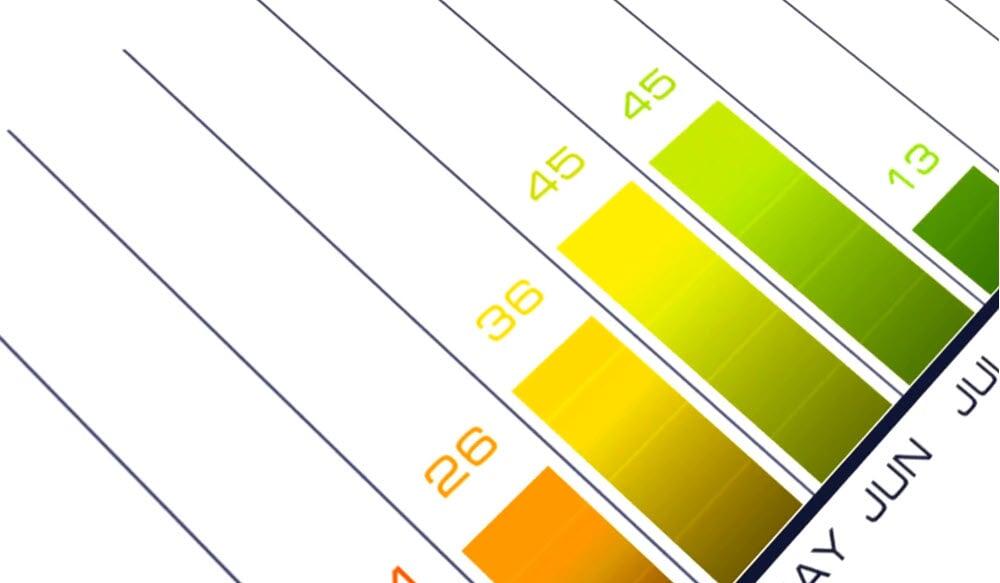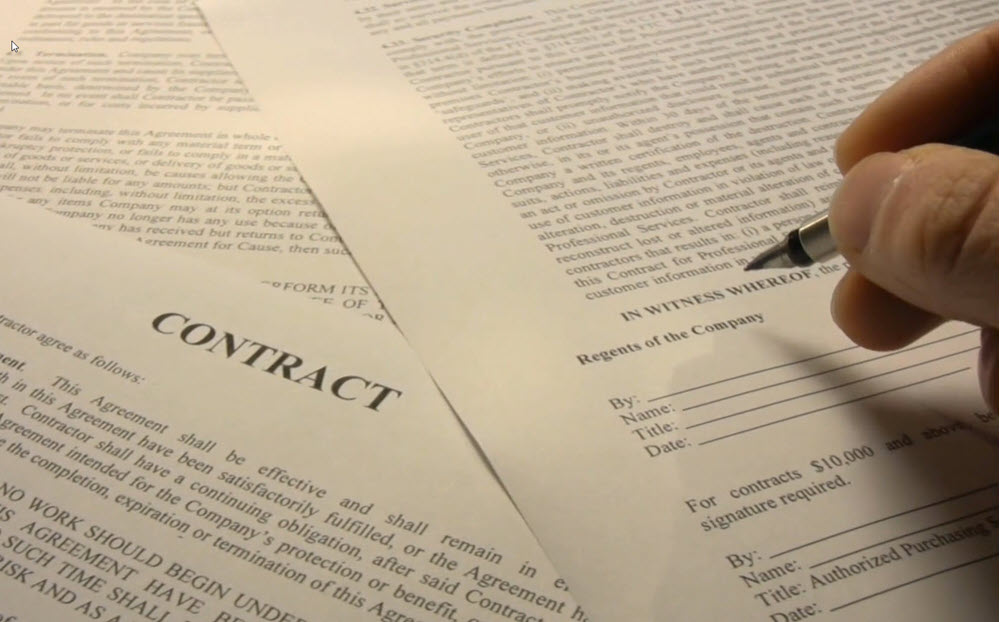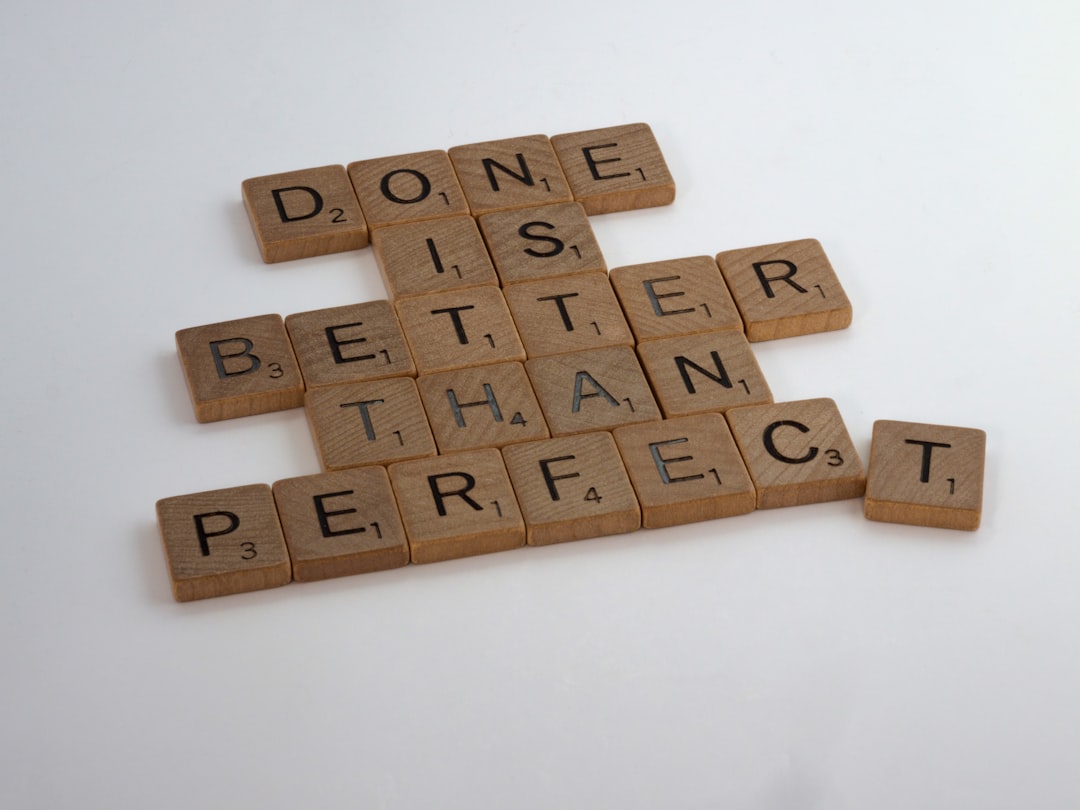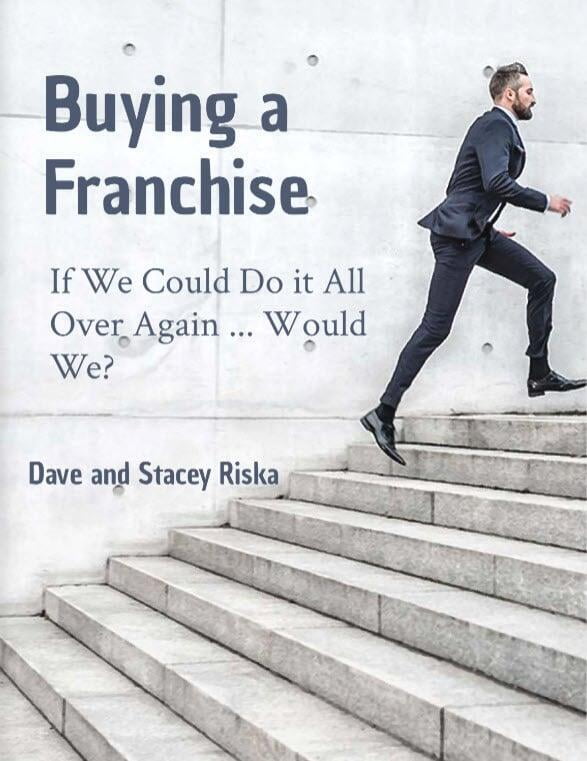Last time in part 1 of “If We Had To Do It All Over Again”, it was a jam-packed episode. We focused on just one area that if we had to do it over again what we would've looked at, which was looking at the franchisor’s strengths and weaknesses. And we laid out a framework of some particular questions we would've asked. More things around product, competition, support and marketing. Now, if you missed that jam-packed episode, there is a link here where you can go back and watch it.
We would highly encourage you to do so. Today we’re playing armchair quarterback and kind of looking back and asking the question, if we had to do it over again, would we? And what areas might we go a little bit deeper? At the end we will answer that question.
The Franchise Leadership Team
First, we're going to be looking at the leadership team. Dave, give me your insight on this because in our franchise, when we were looking at this subject, what was your initial impression of the leadership team?
So my opinion of the leadership team was that I didn't really have anything bad to say about the leadership team of the franchise that we purchased. On the other hand, that was probably more out of being naïve than it was out of reality. What we found over time was that the leadership team, not that they were really a bad leadership team, but very unfocused. I believe that would be the word for it. And really trying to do too many things and not really doing any particular one of them extremely well.
I agree with you because at the time we were in what was considered a hot franchise, it was an emerging brand, and therefore the leadership team was growing and they had a lot of great people focused on marketing and things like that, but maybe not necessarily so much on support. At the time, like Dave said, we were a little naïve. We didn't necessarily know what questions to ask. So we are going to give you those questions today. When you're looking at the leadership team is there high turnover? Are people coming and going?
Because in our franchise, we learned very quickly that people were leaving or they were bringing in new people so quickly that they didn't really understand the brand well enough to even support us.
- Who makes the decisions in that leadership team?
- Is it the founder? Is there a CEO in place?
- Is it the marketing person who makes the decision(s)?
- Where is the leadership taking that franchise?
- What are their goals?
- What does success mean to the franchise?
So I think these are questions that if we had dived a little bit deeper and as we were doing our due diligence may have led us to a different logic in our decision making process. I'm not sure we actually had the opportunity to have those in-depth discussions with the leadership team early on. As you're going through your process, and especially if you work with us, we're gonna make sure that you have those conversations and give you appropriate questions to ask. Ultimately, you should come to a point where you have the opportunity to participate in what's called a discovery day. Now in our franchise, we didn't get that opportunity. So discovery day, now they do many of them virtually, but in the past you would travel and would get to go visit the franchise. Sometimes they'll take you out to some of their locations. Have you meet franchisees, definitely something you want to partake in.
Again, I don't necessarily think they were a bad leadership team as a whole, I just think that they were all over the place and really not really super supportive and focused enough because of being all over the place they really weren’t helping us be successful. That's kind of my overall feeling.
Franchise Territory
The next area we're gonna talk about is franchise territory. When you invest in a franchise, most franchises will have territory restrictions.
- So you are buying the rights to sell a particular product or service in a specified territory.
- So you want to know-how is that territory defined and what happens when you want to grow?
- Who is the competition?
All these kinds of questions revolved around territory. Dave how about you talk about how territory impacted us in our franchise?

I think part of what intrigued us about this franchise concept was it was one of the few that actually did not have any territory restrictions. And we liked that because at the time we really wanted some freedom and flexibility. Our thought was, oh, in a few years, we might just want to pick up and move to Florida. We like the idea that we could take the business with us, the equipment, and there was not like we had to go buy a brand new territory in a new area. So there are definitely some benefits to not having franchise territory restrictions, just make sure you understand what you're getting with your franchise.
The other thing is that many of the concepts that we work with are emerging brands, meaning they're new up-and-coming franchises. When it comes to looking at the territory, you might have some bonus points in your favor, especially when you work with someone like us because we can possibly help you negotiate a larger territory. In many of the more established franchises, when you get to the point of signing a franchise agreement, there is no room for negotiation. We kind of found this when we were going through the process, when we came to the point of the franchise agreement, we wanted some things taken out and some things added in and what did they tell us? They said, you can pound sand.
Now looking at it from the other side, we understand why, because you can't have one franchisee who can do something and another franchisee who is doing something else. The whole point is to be systematic where everybody's treated the same and equal. When you are looking at an emerging brand, many times we can help you sometimes negotiate a larger territory. So that's one area where you might get some additional bonus points.
So just think about that, when you're looking at franchises here are some territory related questions:
- What is your territory?
- What's it based on?
- What happens if you want to scale and grow?
- Are there territories available and is it possible to get a larger territory from on the outset, if it's an emerging brand?
Emotional Decisions
So, kind of tying this all together is you're going to come down that franchise roadmap with us to decision day. You're going to have to make a go or no go decision. And I would say, when we were going through it, we made a lot of our decisions based on emotion. Should we have done that?
It's hard not to, in some cases. I think that looking back on what the process we went through there were some gaps in what we should have gotten as far as information before we made our final decision that we did not get. Which means that if we didn't get that then part of that decision was definitely emotional. That is something that you really need to be careful of. It worked out well for us because the franchise was a good match to our why. We really liked the concept, great product, and a lot of fun. So it really worked out okay for us. But I think that looking back it would've been better to spend more time getting the answers to those questions that we didn't get.
You're probably by now asking, what kind of questions would you have asked especially as you're getting closer down the line.
The Franchise Disclosure Document
As you go through this process, there's a couple areas that you will become familiar with in in the FDD (the franchise disclosure document), and these are items 7 and 19. Particularly I'll talk about item seven which lays out the costs of the franchise. What is your investment and what does that look like? The more important one, at least to me, is the item 19. At the time this was an emerging brand franchise so they really did not have an item 19. There were no item 19 disclosures which talks about the revenues and profitability of this franchise. And so what that meant is that it put a lot of extra emphasis on us having to make sure that in our due diligence phase of talking to the franchisees of this franchise that we got that information from them. The reality of it was that it was not easy to get, we only got nuggets, not really true direct answers that we would hope that we would've gotten. We kind of decided, well, we ran a previous business we'll make this work no matter what. The reality of it was that actually came true, meaning that we never had true item 19 figures to work toward to be successful. So we had to make them ourselves and we were one of the ones that they should have been making the item 19 numbers from eventually.
Well, so this is partially accurate. So our franchise again was a little bit different, no territories, but no item 19. The reason no item 19 was because we were not required to report our sales. So in our franchise there was a royalty based on the product sale. So you're paying it up front and then you can determine your prices. Whereas most franchises you're paying the royalty on the backside and you are reporting your sales and therefore a franchise can put that information in the item 19 appropriately.
So again, it goes back to not knowing in the beginning what item 19 was. We didn't know what an item 19 was. We didn't know that not having one was not necessarily good or bad in this particular case. They didn't have one because they couldn't right. They literally had no way to gather the sales information, which meant, going back to the due diligence of talking to the franchisees, and it was difficult to get that information from them. It would have been a lot easier to make an evaluation if that was spelled out in the item 19.

Talking to Other Franchisees
Part of that is you're going to have to understand that you get the opportunity as part of your due diligence to talk to actually as many franchisees as you want. So here's the caveat, and true today, a franchisor is going to lead you to talk to the most successful franchisees. We want you to talk to as many as possible. Here are some questions and considerations (download our full list of franchisee questions):
- We want you definitely to talk to the top tier.
- What makes them successful because you want to be like them?
- What about that middle tier? What differentiates them from the top?
- You should also talk to some underperformers. Why are they not performing?
- Is it because they're not marketing?
- Are they just too stuck in their own ways?
- Are they not following the system?
You kind of have to understand why that is and we will help you through that process. Now looping this back to emotion versus logic.
So Dave (my husband) is generally basing his decisions on the logic. He wants to know the numbers, he wants to know can I make some money? And me, I was more tied into the emotion. Gosh, this is a fun business dealing with people, serving umbrella drinks. It's easy to get caught up in that as you're doing your due diligence. You kind of just, even when you hear something bad or something that's questionable, it's easy to just put it aside. That'll never happen to me (famous last words). Or that was an anomaly or it's just gonna be so good. It doesn't matter, you have to balance both. You definitely want to feel emotion. You want to be excited and passionate about any business that you look at, but yes, it has to make sense at the end of the day and the numbers must validate.
Would We Do It All Over Again and Buy Another Franchise
You need to know when, where and how are you gonna get that return on your investment. Is it 3, 6, 9 months, maybe it's two years by knowing your numbers. Looking at item 7 and item 19 of the FDD will give you a lot of clarity on this. So let's bring this full circle. We've given you a framework in part one and multiple questions that you may want to ask. If you're looking at a franchise, understand the strengths and weaknesses, understanding the territory, meet the leadership team, do your validation and just really understand is this franchise going to be a good fit for you. So we've shared a lot of our story and what we went through. Now 16 years later being armchair quarterbacks if we had to do it again, would we?

The moment of truth, Dave’s answer is “I would do it over again, but I would be a lot more cautious in the evaluation process and not make mostly an emotional decision based on a franchise that seemed like it was gonna be fun”. Even though it turned out pretty well for us, I may not have picked the franchise that we picked then. We may have still picked it, but would've spent more time doing due diligence with other franchises that could have also been a good fit for us.
Stacey answers in agreement, “so if we had to do it over again, I think I would, I really enjoy the business”. It's definitely been a roller coaster and that's another episode where we can talk about the ups and downs of business and how to proactively get through those tough times that will occur, especially as a husband and wife team and still stay happily married. Agreeing, we probably should have more closely looked at other concepts. We were very emotionally excited by the one that we were moving towards and we ultimately decided to go forward with. That was because it was a good fit. We were able to be successful in this franchise, but it also helped us learn so much that that's why we're now able today to help you, the aspiring franchisee.
So if you're curious to even know would I, could I, should I be a business owner? Well, we have a quiz that you can take that will help you determine what kind of business owner you would be. Go to bizquiz.NextLevelFranchiseGroup.com. That's bizquiz.NextLevelFranchiseGroup.com. In a few simple questions you're gonna find out what kind of business owner you would be.
So we look forward to hearing your results. We look forward to hearing your comments. What was your big aha takeaway from these two episodes, “If I had to do it over again”.
Some closing words are that it's a process and it's really, really, really, really important that you match the right franchise to your why, and that you don't skip any of the steps that are along the way in that journey and make an emotional decision and buy something you may regret later.
That's a bonus point, a bonus takeaway, is don't sidestep the process. That's a lot of what we did because when you're super excited, you just want to get started and get going. That's why it's really important to work with someone like us because we're going to make you follow all the steps of our exclusive franchise roadmap system, because that's how you ensure that it's ultimately a good fit for you.
So don't sidestep the process. Make sure you do your due diligence so that you can end up in the great business franchise for you.
What's Your Next? - Podcast
 | Author BioI’m Stacey Riska aka “Small Business Stacey”, your franchise placement specialist. I help aspiring business owners find the PERFECT franchise so they can get to the next level in life and business. |



